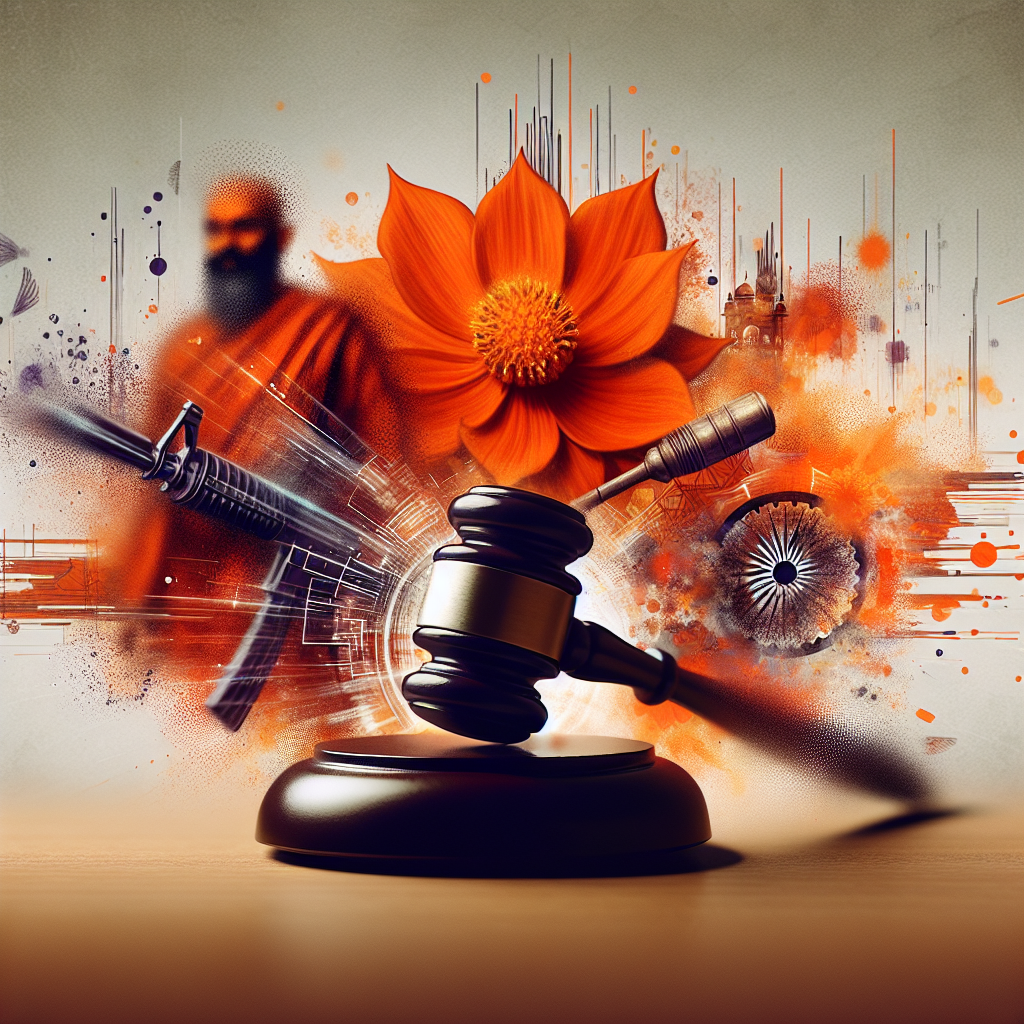Sadhvi Pragya Addresses Acquittal in Blast Case
‘Founder of Saffron Terrorism’ – Sadhvi Pragya Breaks Silence Following Acquittal in Blast Case
Sadhvi Pragya Singh Thakur, a prominent figure in Indian politics and a controversial figure associated with right-wing Hindu nationalism, has made headlines once again after her acquittal in a high-profile blast case. Following the court’s decision, she expressed her thoughts, calling herself a victim of what she terms “saffron terrorism,” a phrase that has sparked intense debate in political and social circles.
Background of the Case
The case in question revolves around the 2008 Malegaon blast, which resulted in several fatalities and injuries. Pragya was arrested in 2008 and accused of being involved in the incident, which was initially investigated as an act of terrorism. However, over the years, the narrative surrounding the case shifted, with various political leaders and commentators discussing the implications of her involvement and the broader context of Hindu nationalism in India.
Pragya’s Statements Post-Acquittal
After her acquittal, Pragya stated, “I have been wrongly implicated in this case, and the truth has finally prevailed.” She emphasized her belief in the need to address what she describes as the political misuse of labels like “terrorism” to target individuals who hold a particular ideological stance. Her comments have reignited discussions about the politicization of terrorism in India, with critics arguing that such narratives can undermine the seriousness of actual terrorism.
Political Reactions
The reactions to Pragya’s acquittal have been mixed. Supporters hail it as a victory for justice, arguing that it highlights the flaws in the investigation and judicial processes. Conversely, critics argue that her acquittal reflects a troubling trend in which political motives overshadow justice, potentially emboldening extremist ideologies.
The Broader Implications
Pragya’s case is emblematic of a larger conversation about communal tensions and the nature of terrorism in India. The term “saffron terrorism,” which refers to acts of violence carried out in the name of Hindu nationalism, has become a contentious issue, with many accusing the government and law enforcement agencies of bias. This case raises questions about the treatment of various religious communities and the impact of political narratives on societal cohesion.
Future Prospects
As Sadhvi Pragya continues to make her mark in Indian politics, her acquittal may have significant implications for the BJP (Bharatiya Janata Party) and its supporters. Given her controversial past, her presence in the political arena could influence public perception and voter sentiment ahead of upcoming elections. The discourse surrounding her case will likely continue to evolve, drawing attention to the broader issues of justice, nationalism, and communal harmony in India.
In conclusion, Sadhvi Pragya’s acquittal has reopened critical discussions about the intersection of politics and terrorism, the implications of labeling, and the ongoing struggles within Indian society regarding identity and justice. As the political landscape shifts, it remains to be seen how these discussions will shape future narratives and policies in the country.
